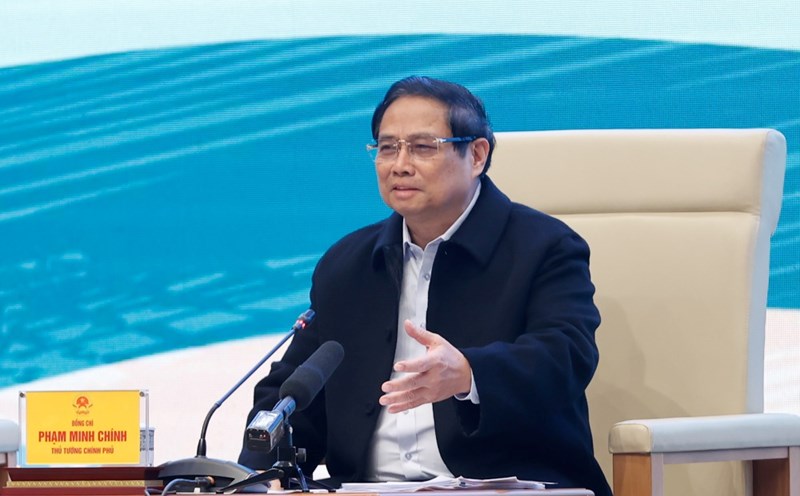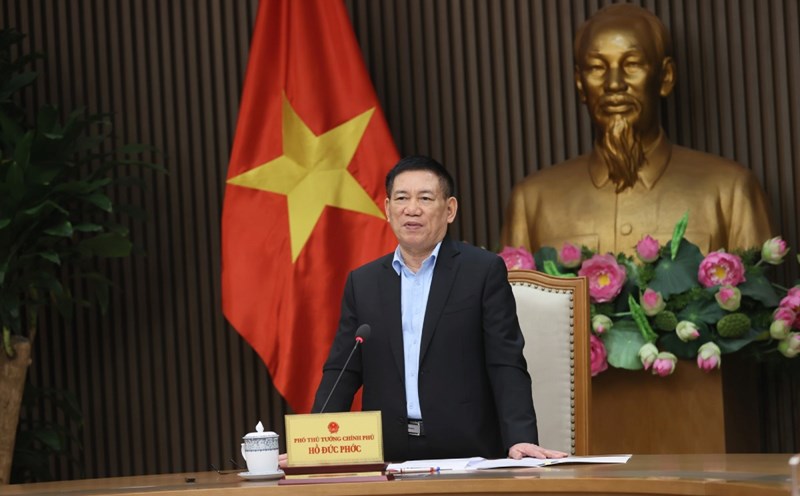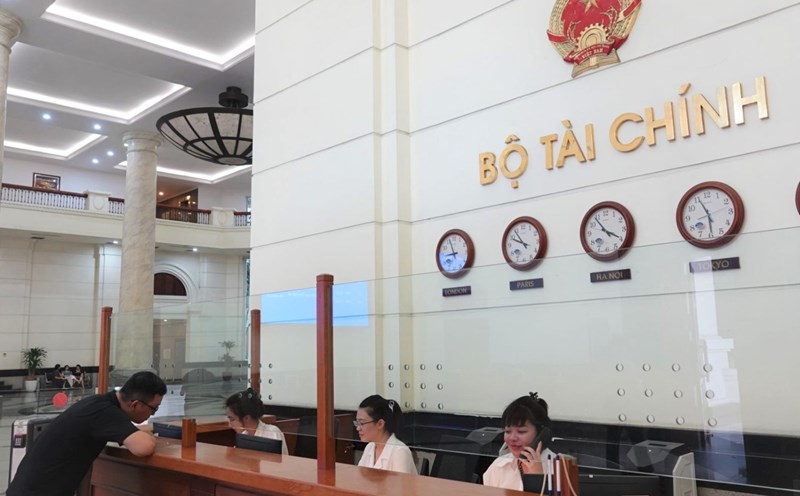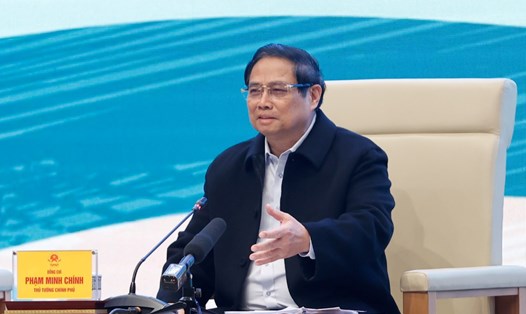For the first time, budget revenue reached over 2 million billion, exceeding 324 thousand billion.
On the afternoon of December 31, the Ministry of Finance held a conference to review and evaluate the implementation of financial and state budget tasks in 2024 and deploy tasks for 2025 in person and online. Prime Minister Pham Minh Chinh attended and directed the conference.
Reporting at the Second Meeting, the Ministry of Finance said that in 2024, in the context of the country's socio-economic situation facing many difficulties and challenges, from the beginning of the year, the Ministry of Finance has proactively researched, proposed to competent authorities as well as issued under its authority many solutions to operate a reasonable, focused, key expansionary fiscal policy, coordinated synchronously and harmoniously with monetary policy and other macroeconomic policies to support production and business, promoting growth drivers.
The total support package for taxes, fees, charges and land rents in 2024 is about 197 trillion VND; in which, many outstanding policies have great spillover effects.
As a result, the state budget revenue for the whole year of 2024 is estimated to reach over 2 million billion VND, equal to 119.1% (an increase of 324.4 thousand billion VND) compared to the estimate, an increase of 15.5% compared to the implementation in 2023.
In addition, state budget expenditures as of December 31 are estimated to reach about VND 1,830.8 trillion, equal to 86.4% of the estimate.
Increased revenue and savings are bright spots
Speaking at the Conference, Prime Minister Pham Minh Chinh acknowledged the important achievements of the financial sector, especially in "increasing revenue and saving expenditure". However, the Prime Minister also pointed out the issues that need to be overcome such as:
Slow coordination between units: The Ministry of Finance needs to proactively coordinate more with ministries, branches, and localities and boldly express opinions in research and policy comments.
Disbursement of public investment capital is still stuck: The Prime Minister emphasized that the biggest bottleneck is the institution. He directed the Ministry of Finance and the Ministry of Planning and Investment to strongly cut down on procedures, avoiding the situation of projects being "approved multiple times", causing waste and capital increase.
Financial discipline and order are not strict: Some provinces and cities have not fully reported on projects causing waste. The Prime Minister requested to clarify the causes and responsibilities.
In addition, the Prime Minister emphasized that he has assigned the Ministry of Finance to study and amend regulations on public asset management and develop the Law on State Capital Management and Investment in Enterprises, replacing Law 69/2014/QH13 to be more suitable to reality, and requested the Ministry of Finance to complete it soon.
In addition, to improve implementation efficiency, the Finance sector needs to strengthen decentralization and delegation of authority, coupled with strict control and supervision. Localities need to be more proactive in performing assigned tasks, avoiding evasion and shirking of responsibility.
The Prime Minister encouraged officials and civil servants in the finance sector to have a breakthrough mindset, dare to think, dare to do, dare to take responsibility. They should not be too safe in their decisions but should innovate to mobilize and exploit resources to the maximum for national development.











